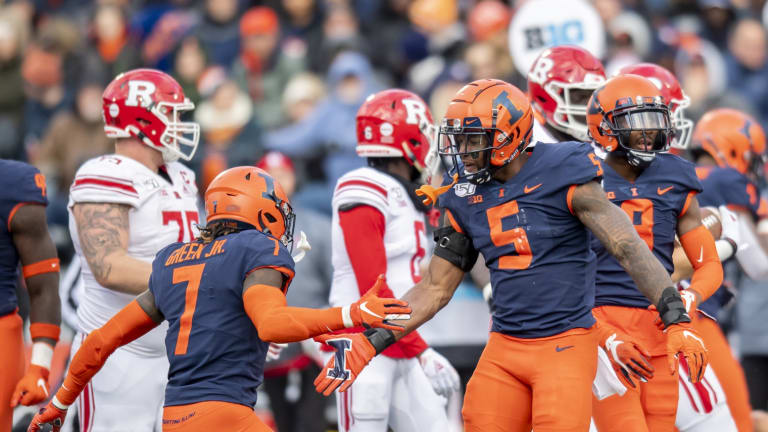
Illini LB Eifler Sparks Debate About Safety of Playing in a Pandemic

I don’t know about you. But I’m getting the feeling that the return of our four major team sports remains precarious. Very precarious.
Good for them that they are making plans, conducting ``voluntary’’ workouts, gathering for ``spring’’ training, preparing for mini-seasons and playoffs in ``bubbles.'' There is so much at stake; they have to try.
But it’s clear that it won’t take much to gum up all the careful planning. And too much remains unknown about COVID-19 to assume anything about sports.
One aspect of this that cannot be overlooked is . . . how the athletes feel.
How they feel about grunting and breathing and sweating and rolling around with teammates and opponents in a world where that kind of contact runs directly against everything Dr. Fauci and other experts recommend.
A number of baseball players and NBA players already have voted, by opting out of these perilous returns. We’ll see how that goes when the NHL and the NFL are farther along in their resumption attempts.
Where this gets trickier, though, is with NCAA football. College players are in a very different position. They don’t have a players’ association advising and standing up for them. They haven’t been drawing giant paychecks. And they are much more under the influence of their coaches.
Ideally, these coaches are father figures. That’s accurate in many cases. College football programs are far more like families than pro sports.
And yet, even in tight-knit families, opinions can be different.
I guess what I’m saying is, how does a college football player who believes it’s unwise and unsafe proceed?
I do not know the answer.
``I understand that people want to see us play this season but in reality how can a team full of 100+ student athletes fully function during a pandemic. Trust, my teammates and I want to play. But schools around the country are showing blatant disregard for student athletes.’’
What I found especially interesting were the comments—on both sides of the ``To play or not to play’’ question. The discussion about the risks and rewards of playing, the assessments of the danger of Coronavirus, which voices to listen to—it's all there. And it's even edgy at times. You can check it out here.
Eifler, a Berkeley, Calif., native who transferred to Illinois from Washington, obviously is an intelligent and thoughtful young man. That’s clear from his public concerns about playing football in a pandemic.
The conversation he started makes me wonder how many college football players share his feelings. I don’t know the answer.
More than a few, I believe. Last month, a group of 30 UCLA players put together a list of demands to protect their health. The document, reported by the Los Angeles Times, included these demands:
@ A third-party health official on hand for all football activities to ensure all COVID-19 prevention protocols are being followed.
@ Anonymous whistleblower protections for players and staff to report violations.
@ Scholarship protection for those making decisions about whether to come back to campus
All of these kinds of safeguards, it should be noted, will add to the cost of college football, which already is facing greatly diminished revenue because of reduced ticket sales. That's another reason why the biggest football programs will pursue every option, while smaller programs will find pandemic peril overwhelming.
How many college players are concerned or downright fearful about the risks involved in playing when there’s a deadly virus lurking with so many unknown implications? That’s one of the many things we don’t know as the world tries to move forward through this pandemic minefield.
I do know this: My heart goes out to the younger generation trying to make its way through these troubles. And I wouldn’t be surprised if this pandemic peril helps them become better equipped to deal with the daunting challenges they are likely to face in the future.